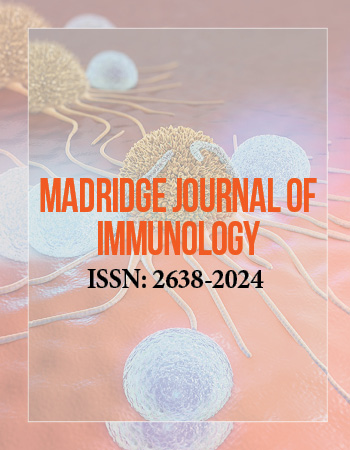International Conference on Immunology and Immunotechnology
November 1-3, 2017 Barcelona, Spain
Indirubin Ameliorates Imiquimod-Induced Psoriasis-like Skin Lesions in Mice by Inhibiting IL-17+ γδ T cell Mediated Inflammatory Responses
Beijing Hospital of Traditional Chinese Medicine, Capital Medical University, Beijing Institute of Traditional Chinese Medicine, China
Objectives: Indirubin is extracted from the leaves of Indigo naturalist, a traditional Chinese herbal medicine that has been used in China to treat inflammatory diseases for years. Psoriasis is a chronic immune-mediated inflammatory skin disease in which γδ T cells play an important role. This study aimed to demonstrate the immunoregulation effect of indirubin in inflammatory process of psoriasis and explore the mechanism further.
Methods: A mouse model of psoriasis was induced by administration of imiquimod. Mice were administered with indirubin, methotrexate, or normal saline intragastrically. Keratinocyte proliferation, inflammatory cell infiltration, cytokines mRNA levels, and JAK/STAT signaling pathway related proteins were examined. Moreover, mouse spleen cells were incubated under γδ T cell polarizing conditions with indirubin and cell viability was tested by CCK-8, secretion of IL-17 was measured by ELISA, activation of JAK3/STAT3 signaling pathway was detected by Western blotting.
Results: Indirubin ameliorated keratinocyte proliferation, reduced infiltration of CD3+T cells, γδ T cells in dermis to psoriatic lesions, altered γδ T+ cell amounts in spleen and lymph nodes, inhibited IL-1mRNA, IL-6mRNA, IL-23 P40 mRNA, IL-17AmRNA and IL-22mRNA levels expression and JAK3/STAT3 signaling in psoriatic lesions. In vitro, indirubin inhibited the IL-17A expression and secretion of isolated γδ T cells, suppressed the JAK3/STAT3 signaling activation.
Conclusion: Indirubin alleviates IMQ-induced psoriasis-like inflammation by reducing the infiltration of inflammatory cell and cytokine expression, especially inhibiting IL-17+ γδ T cell mediated inflammatory responses via JAK3/STAT3 mediated signaling pathway. Our results indicate that indirubin is a promising drug in the treatment of psoriasis.
Biography:
Jingxia Zhao was born in 1981, China. She received PhD from Beijing University of Chinese Medicine in 2013. Now she is an associate researcher in Beijing Hospital of Traditional Chinese Medicine and Beijing Institute of Traditional Chinese Medicine. Her research focus on the potential activities of Chinese herbal extracts on anti-inflammation and immunoregulation effect. As principal investigator and co-investigator, she has completed 10 research programs totally, and has more than 20 peer-reviewed publications in journals in the field of immunology as first and/or correspondence author.


